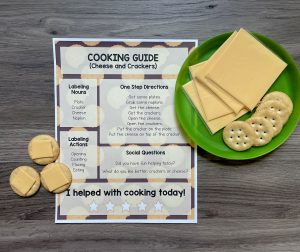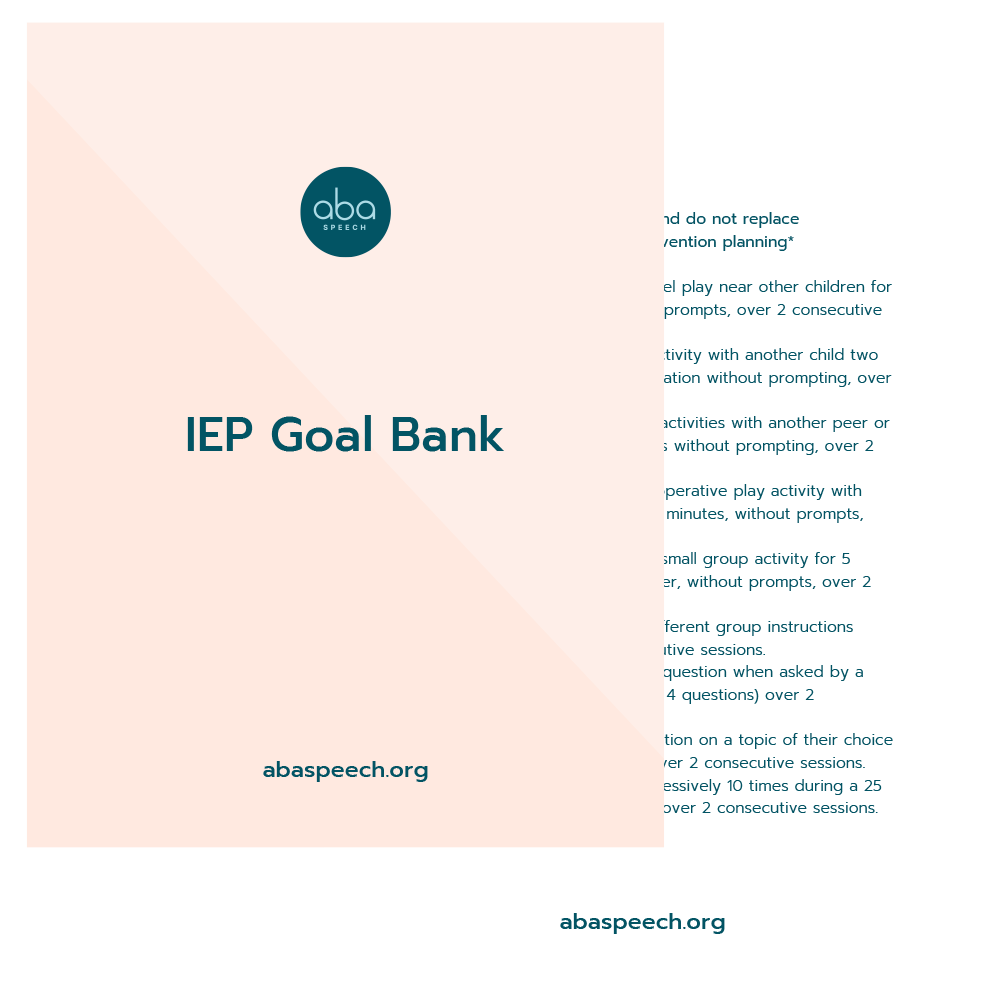
Language Is Everywhere
Do your children like to help in the kitchen? If so, I have a fun and engaging no-prep activity to share with you! I have created a cooking guide to be used with children at home or during therapy sessions; the guide we are sharing with you today is all about cheese and crackers! This simple and functional activity can be used with almost any age and adapted to a variety of learning levels! Making cheese and crackers can engage a variety of learning styles including visual (learn through seeing/observing); auditory (learn through hearing); tactile (learn through touch); and/or kinesthetic (learn through doing and moving). The ultimate foundation of communication occurs through building language skills, and cooking activities can be such a fun and engaging way to work on these skills!
Getting Started
Cooking activities, such as making cheese and crackers, provide the opportunity to address and target a variety of potential skills! What goals can be targeted in this activity using our cooking guide? There are multiple opportunities embedded to address and target following one-step directions (i.e. Get some plates; Grab some napkins; Get the cheese; Get the crackers; Open the cheese; Open the crackers; etc.). The level of complexity may be adjusted to follow 2 and 3-step directions which also helps with sequencing skills. Spatial concepts may also be targeted, in guiding your students through these simple directions (i.e. Put the cracker on the plate; Put the cheese on top of the cracker). This language-rich activity also facilitates the opportunity to improve receptive and expressive vocabulary by embedding a variety of target nouns (i.e plate, cracker, cheese, napkin), action words (i.e. open, count, place, eat), and present progressive verbs (i.e. opening, counting, eating, etc.) into the steps. Pragmatic language may be addressed as well through social questions (i.e “Did you have fun helping today?” “What do you like better, crackers or cheese?”). Through these questions, students have the opportunity to practice social skills such as establishing and maintaining eye contact and engaging in reciprocal conversation. Providing opportunities to help build students’ social language skills not only contributes toward their growth in communication but also builds confidence in social situations! Upon completing the activity, you can discuss each step completed to work on sequencing skills. This discussion also provides great opportunities to work grammatical forms such as regular past-tense (-ed) and irregular past-tense to improve syntax skills! Not only can you work on some of the specific skills I’ve listed, this activity also offers an authentic opportunity to learn to generalize language and maintain skills!
Get Your Free Guide Below
We hope you enjoy using our new cooking guide at home and in therapy sessions! Be sure to scroll down to the bottom, and input your e-mail to get your free Cheese and Crackers Cooking Guide! This is the perfect supplement to ease your planning for activities and therapy sessions for all ages!

0 Comments